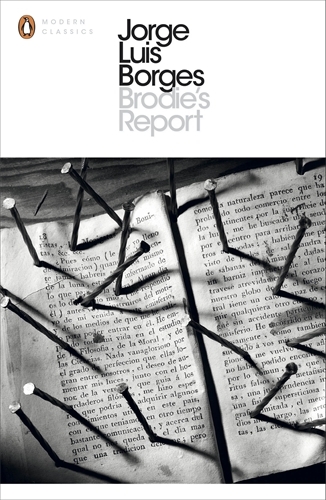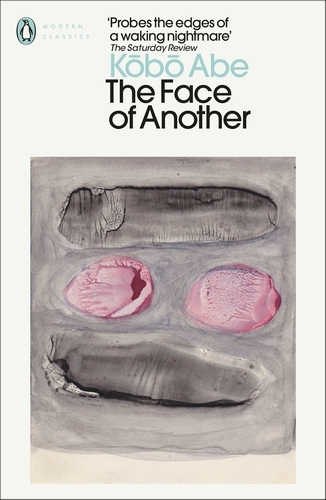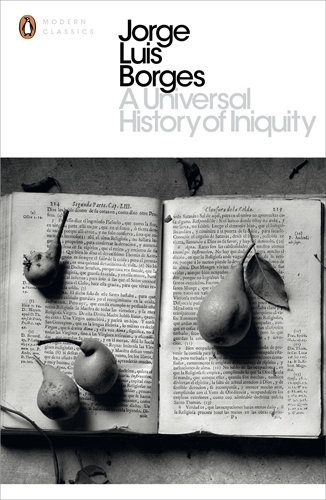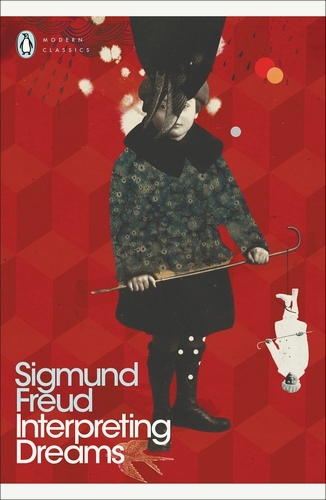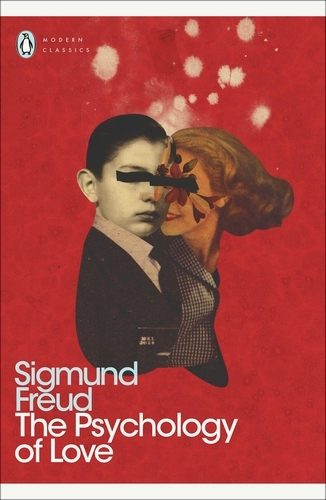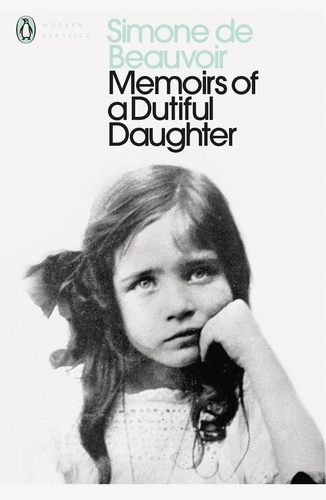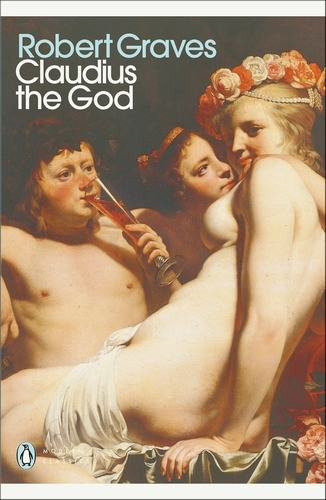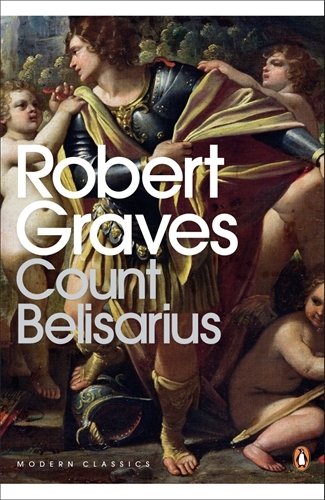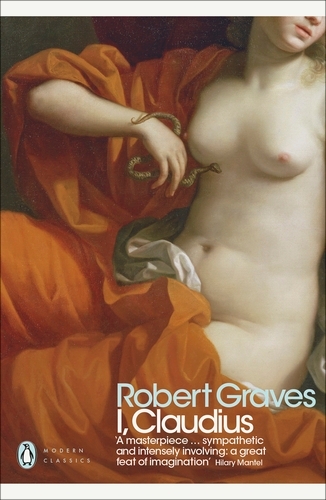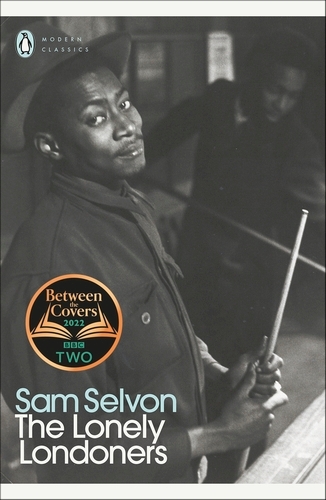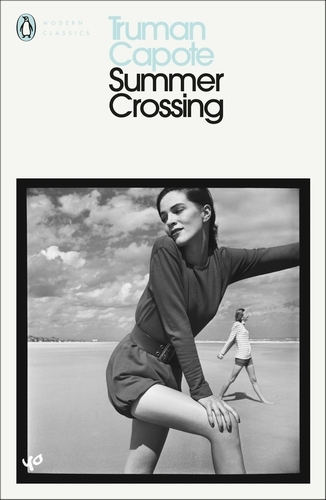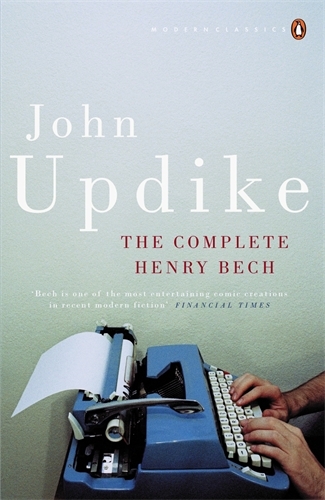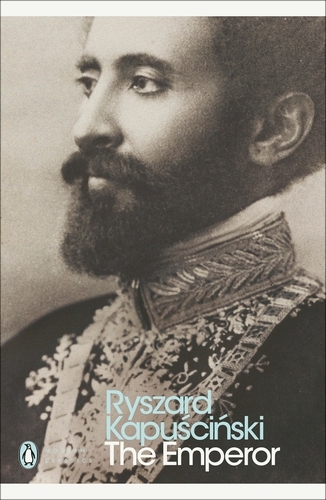Penguin Modern Classics
1281 books in this series
Brodie's Report
The art of writing is mysterious; the opinions we hold are ephemeral. In these eleven short stories the quality of his inspiration is unmistakable. With their deceptively simple, almost laconic style, they achieve a magical impression that is unrivalled in modern writing.
The Face of Another
The narrator is a scientist hideously deformed in a laboratory accident - a man who has lost his face and, with it, connection to other people. Even his wife is now repulsed by him. His only entry back into the world is to create a mask so perfect as to be undetectable. But soon he finds that such mask is more than a disguise: it is an alternate self - a self that is capable of anything. A remorseless meditation on nature, identity, and the social contract, THE FACE OF ANOTHER is an intellectual horror story of the highest order.
A Universal History of Iniquity
Borges' first collection of stories (1935). In his writing, Borges always combined high seriousness with a wicked sense of fun. Here he reveals his delight in re-creating (or making up) colorful stories from the Orient, the Islamic world, and the Wild West, as well as his horrified fascination with knife fights, political and personal betrayal, and bloodthirsty revenge. Spark-ling with the sheer exuberant pleasure of story-telling, this collection marked the emergence of an utterly distinctive literary voice.
The Woman in the Dunes
One of the premier Japanese novels in the twentieth century, THE WOMAN IN THE DUNES combines the essence of myth, suspense, and the existential novel. In a remote seaside village, Niki Jumpei, a teacher and amateur entomologist, is held captive with a young woman at the bottom of a vast sand pit where they are pressed into shovelling off the ever-advancing sand dunes that threaten the village.
Interpreting Dreams
By a detailed investigation of the universal phenomenon of dreaming, Freud discovered a radical new way of exploring the unconscious and recognized that dreams are a conflict and compromise between conscious and unconscious impulses. Through his insights about dreams, Freud was able to revise his methods of treatment for neurotic patients and develop, largely through this remarkable work, his revolutionary theories of the Oedipus Complex and of the profound importance of infantile life and sexuality for the development of adults.
The Psychology of Love
This volume brings together Freud's main contributions to the psychology of love. His illuminating discussions of the ways in which sexuality is always psychosexuality - that there is no sexuality without fantasy, conscious or unconscious - have changed the ways we think about erotic life. In these papers Freud develops his now famous theories about the sexuality of childhood and the transgressive nature of human desire.
In the famous case study of the eighteen-year-old 'Dora', we see Freud at work, both putting into practice and testing his sexual theories that were to change the modern world.
In the famous case study of the eighteen-year-old 'Dora', we see Freud at work, both putting into practice and testing his sexual theories that were to change the modern world.
Memoirs of a Dutiful Daughter
A superb autobiography by one of the great literary figures of the twentieth century, Memoirs of a Dutiful Daughter offers an intimate picture of growing up in a bourgeois French family, rebelling as an adolescent against the conventional expectations of her class, and striking out on her own with an intellectual and existential ambition exceedingly rare in a young woman in the 1920s. Simone de Beavoir describes her early life, from her birth in Paris in 1908 to her student days at the Sorbonne, where she met Jean-Paul sartre - 'the dream-companion I had longed for since I was fifteen'.
Claudius the God
Claudius has survived the murderous intrigues of his predecessors to become, reluctantly, Emperor of Rome. Here he recounts his surprisingly successful reign: how he cultivates the loyalty of the army and the common people to repair the damage caused by Caligula; his relations with the Jewish King Herod Agrippa; and his invasion of Britain. But the growing paranoia of absolute power and the infidelity of his promiscuous young wife Messalina mean that his good fortune will not last forever. In this second part of Robert Graves's fictionalized autobiography, Claudius - wry, rueful, always inquisitive - brings to life some of the most scandalous and violent times in history.
Count Belisarius
The sixth century was not a peaceful time for the Roman empire. Invaders threatened on all fronties, but they grew to respect and fear the name of Belisarius, the Emperor Justinian's greatest general. With this book Robert Graves again demonstrates his command of a vast historical subject, creating a startling and vivid picture of a decadent era.
I, Claudius
Despised for his weakness and regarded by his family as little more than a stammering fool, the nobleman Claudius quietly survives the intrigues, bloody purges and mounting cruelty of the imperial Roman dynasties. In I, Claudius he watches from the sidelines to record the reigns of its emperors: from the wise Augustus and his villainous wife Livia to the sadistic Tiberius and the insane excesses of Caligula. Written in the form of Claudius' autobiography, this is the first part of Robert Graves's brilliant account of the madness and debauchery of ancient Rome, and stands as one of the most celebrated, gripping historical novels ever written.
The Lonely Londoners
At Waterloo Station, hopeful new arrivals from the West Indies step off the boat train, ready to start afresh in 1950s London. There, homesick Moses Aloetta, who has already lived in the city for years, meets Henry 'Sir Galahad' Oliver and shows him the ropes. In this strange, cold and foggy city where the natives can be less than friendly at the sight of a black face, has Galahad met his Waterloo? But the irrepressible newcomer cannot be cast down. He and all the other lonely new Londoners - from shiftless Cap to Tolroy, whose family has descended on him from Jamaica - must try to create a new life for themselves. As pessimistic 'old veteran' Moses watches their attempts, they gradually learn to survive and come to love the heady excitements of London.
Don't Look Now and Other Stories
John and Laura have come to Venice to try and escape the pain of their young daughter's death. But when they encounter two old women who claim to have second sight, they find that instead of laying their ghosts to rest they become caught up in a train of increasingly strange and violent events. The four other haunting, evocative stories in this volume also explore deep fears and longings, secrets and desires: a lonely teacher who investigates a mysterious American couple; a young woman confronting her father's past; a party of pilgrims who meet disaster in Jerusalem; a scientist who harnesses the power of the mind to chilling effect ...
Summer Crossing
Grady - beautiful, rich, flame-haired, defiant - is the sort of girl people stare at across a room. The daughter of an important man, who people want to be introduced to. A girl to whom people sense something is going to happen ...
But her privileged society life of parties, debutantes and dresses leaves her wanting more. And excitement comes in the form of the highly unsuitable Clyde, a Brooklyn-born, Jewish parking attendant. When Grady's parents leave her alone for the first time in their New York penthouse one summer, their secret affair intensifies. As a heat wave envelops the city, Grady gets in deeper and deeper and cares less about the consequences. Soon, though, she will be forced to make decisions - choices that will forever affect her future once the long, sultry summer comes to an end.
But her privileged society life of parties, debutantes and dresses leaves her wanting more. And excitement comes in the form of the highly unsuitable Clyde, a Brooklyn-born, Jewish parking attendant. When Grady's parents leave her alone for the first time in their New York penthouse one summer, their secret affair intensifies. As a heat wave envelops the city, Grady gets in deeper and deeper and cares less about the consequences. Soon, though, she will be forced to make decisions - choices that will forever affect her future once the long, sultry summer comes to an end.
The Complete Henry Bech
Henry Bech, the celebrated author of Travel Light, has been scrutinized, canonized and vilified by critics and readers across the world. Here, the experiences of this bemused literary icon, one of Updike's greatest creations, are described in hilarious detail, as he travels the world struggling to break his writer's block; returns to his native America to find new success with Think Big, his all-time blockbuster; and visits communist Czechoslovakia, where he is greeted by a dizzyingly adoring public. Brilliantly comic and deeply poignant, The Complete Henry Bech is one of the greatest of all explorations of the writing life and of what happens when an writer becomes a literary celebrity.
The Emperor
After the deposition of Haile Selassie in 1974, which ended the ancient rule of the Abyssinian monarchy, Ryszard Kapuscinski travelled to Ethiopia and sought out surviving courtiers to tell their stories. Here, their eloquent and ironic voices depict the lavish, corrupt world they had known - from the rituals, hierarchies and intrigues at court to the vagaries of a ruler who maintained absolute power over his impoverished people. They describe his inexorable downfall as the Ethiopian military approach, strange omens appear in the sky and courtiers vanish, until only the Emperor and his valet remain in the deserted palace, awaiting their fate. Dramatic and mesmerising, The Emperor is one of the great works of reportage and a haunting epitaph on the last moments of a dying regime.
In the Beauty of the Lilies
Taking its title from the "Battle Hymn of the Republic", IN THE BEAUTY OF THE LILIES traces one family's profound journey through four generations--and across the spiritual landscape of twentieth-century America. It is one of John Updike's fullest and finest work of fiction.
